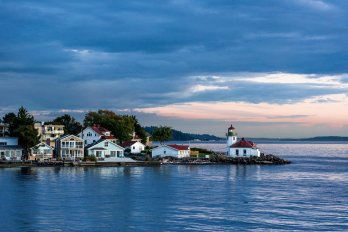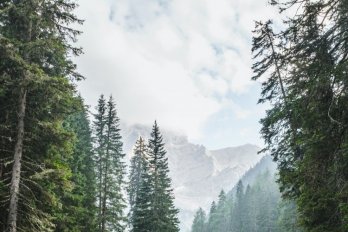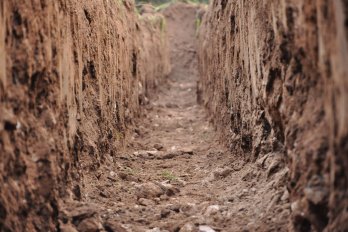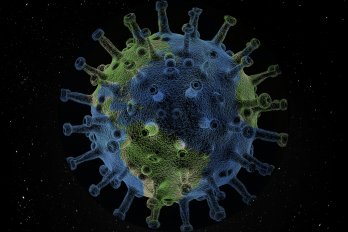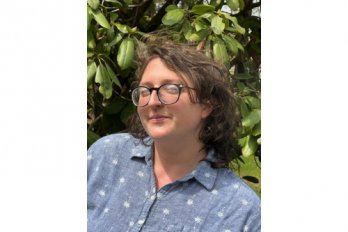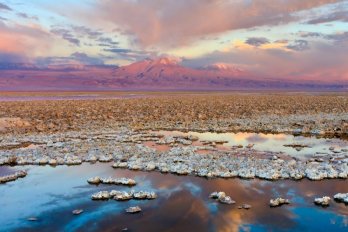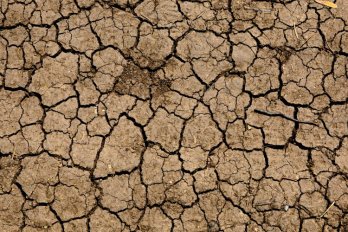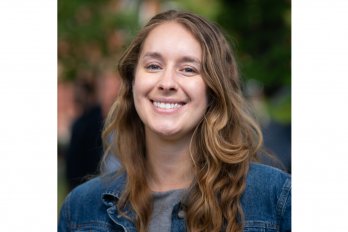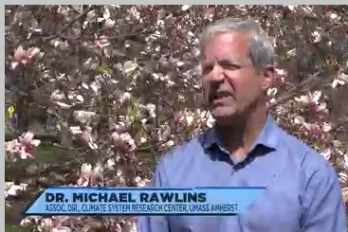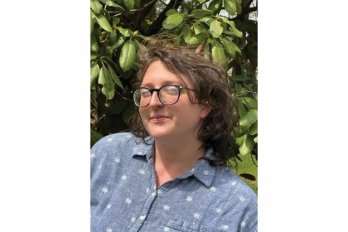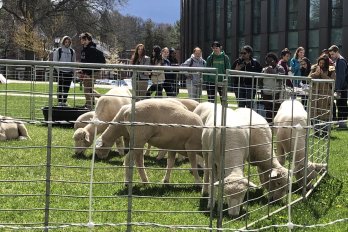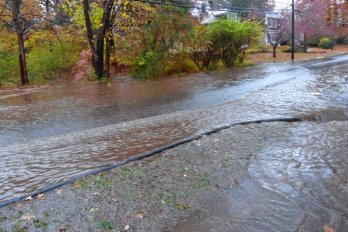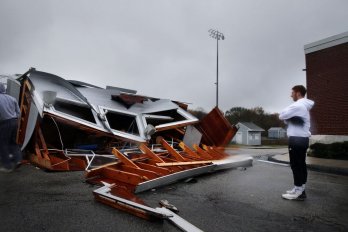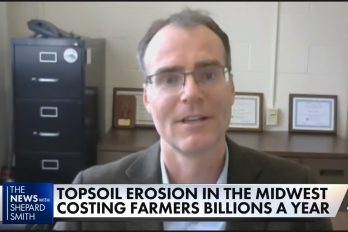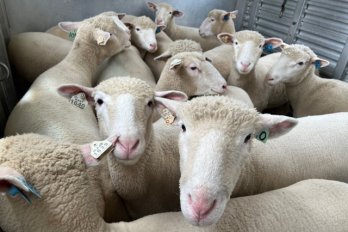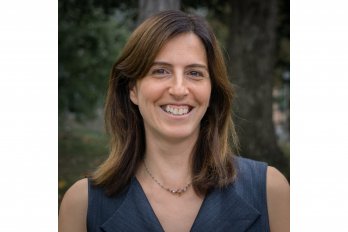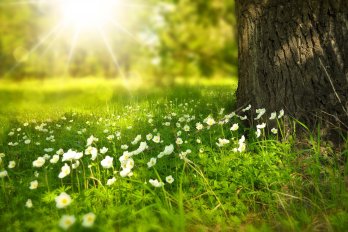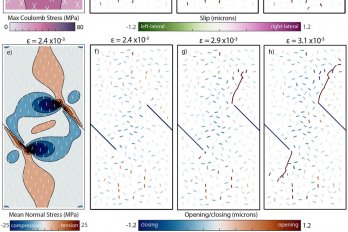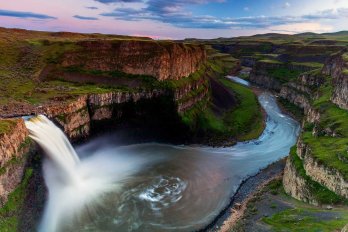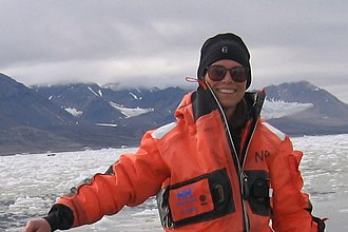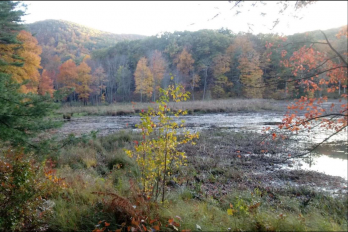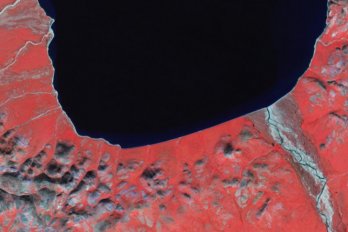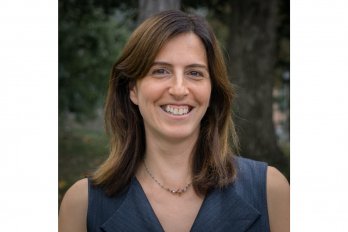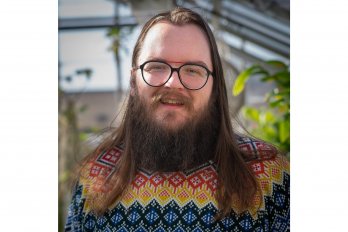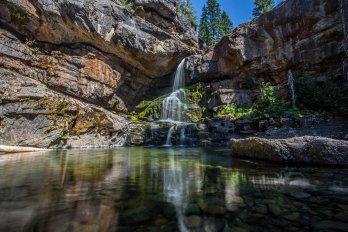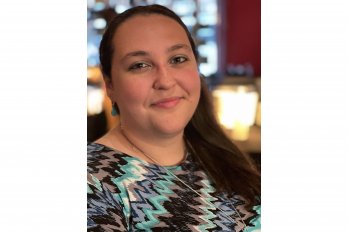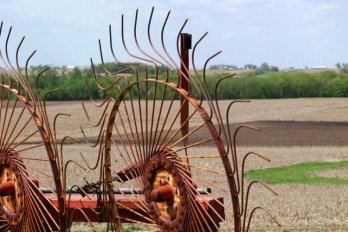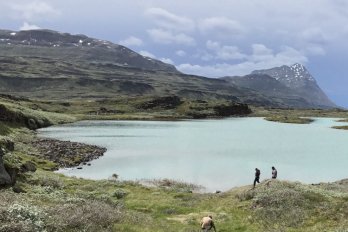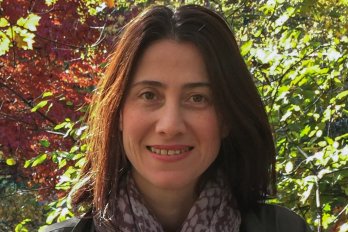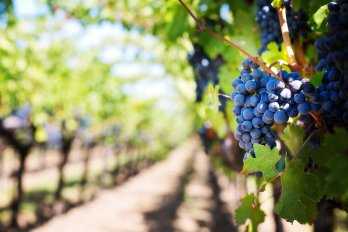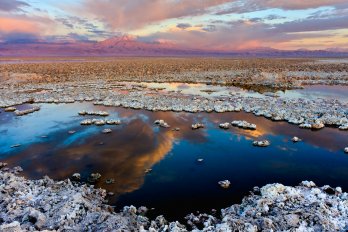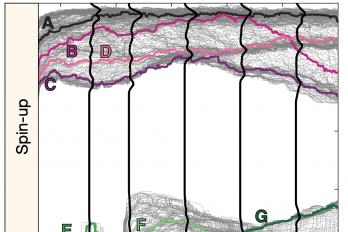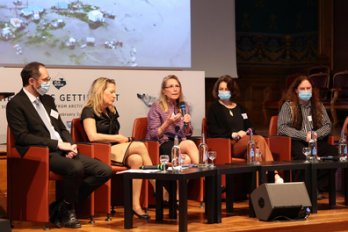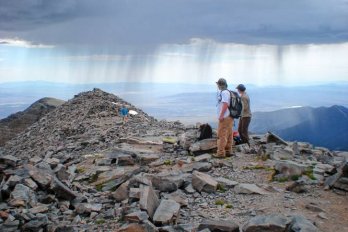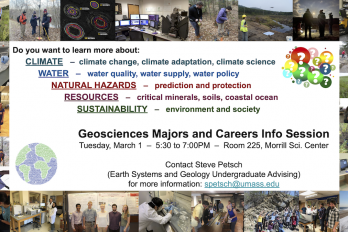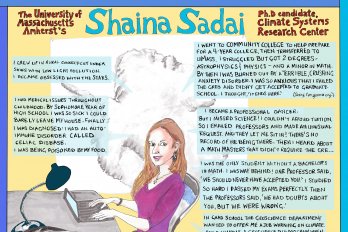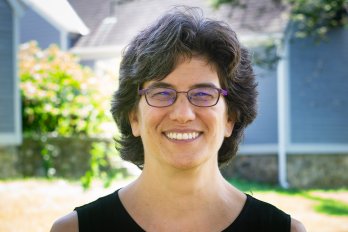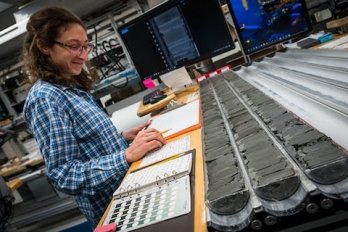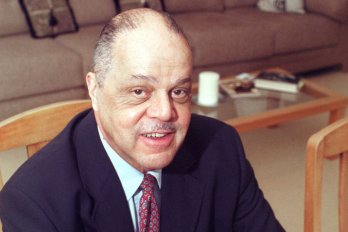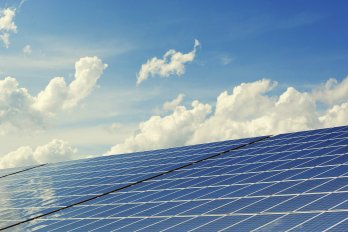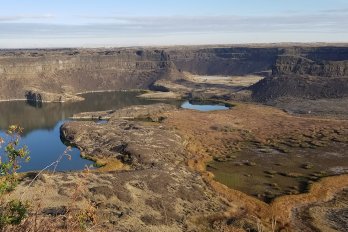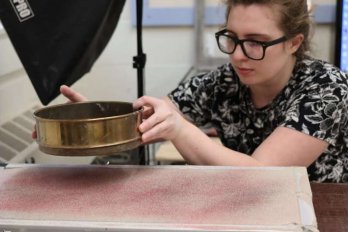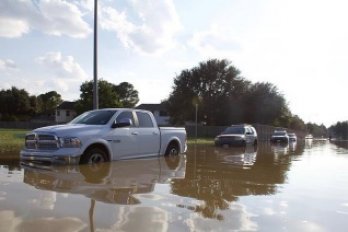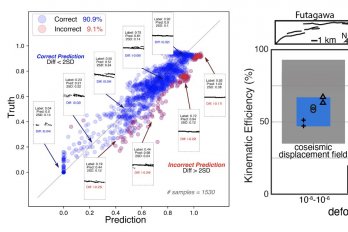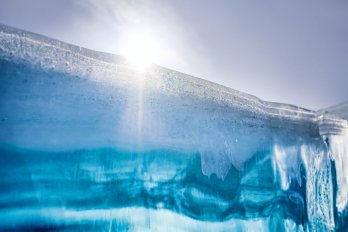-
In their latest piece in temblor PhD student Laura Fattaruso discusses the most recent WA-DNR report highlighting areas in Puget Sound that are at risk of tsunami inundation if a large earthquake occurred.
-
Dr. Jonathan Woodruff and several colleagues are part of a team led by Indigenous scholars proposing a new Center for Braiding Indigenous Knowledges and Science that will emphasize scientific research conducted in partnership with Indigenous communities on issues that are central to those communities.
-
In a recent paper in the American Journal of Science, Dr. Matthew Winnick and colleagues re-examine the relationships between Lithium isotopes and global weathering regimes to revise how such isotopes should be used in models that link weathering rates to changes in climate.
-
Dr. Forrest Bowlick and colleagues recently published a paper in The Geography Teacher providing an autoethnographic perspective on how the COVID-19 pandemic challenged traditional GIS pedagogy, course format and structure, and higher education technological infrastructures.
-
Graduate student Laura Fattaruso is the Geological Society of America’s 2022–2023 Science Communication Fellow. In this role, Fattaruso will help translate technical research from GSA journals and meeting presentations into relatable stories for non-technical audiences.
-
A groundbreaking new study recently published in the journal Earth’s Future by alum Brendan Moran, professor Dave Boutt, graduate student Sarah McKnight, and colleagues at University of Alaska, is the first to comprehensively account for the hydrological impact of lithium mining. Since lithium is the key component of the lithium-ion batteries that are crucial for the transition away from fossil fuels and towards green energy, it is critical to fully understand how to responsibly obtain the precious element.
-
Fifteen centuries ago, extreme dry conditions contributed to the decline of the ancient South Arabian kingdom of Himyar. Combined with political unrest and war, the droughts left behind a region in disarray, thereby helping to create the conditions on the Arabian peninsula that made possible the spread of the newly emerging religion of Islam. Dr.'s Stephen Burns, Ray Bradley, and collaborators including former post-doc Dominick Fleitmann explain in their new article in Science.
-
Dropping the GRE is just a first step toward holistic admissions. To further reduce bias in applicant evaluations, the UMass-Amherst geosciences program has changed the way it assesses students. A group of Geosciences faculty & students, including Dr. Michele Cooke, Hannah Baranes, Dr.'s Isla Castañeda, Jonathon Woodruff, and David Boutt, have written an article in EOS about the process that might help other programs considering how to move forward from #Grexit.
-
PhD Student Sarah McKnight is one of 80 graduate students selected for the Office of Science Graduate Student Research (SCGSR) program’s 2021 Solicitation 2 cycle. Through world-class training and access to state-of-the-art facilities and resources at DOE national laboratories, SCGSR prepares graduate students to enter jobs of critical importance to the DOE mission and secures the U.S. position at the forefront of discovery and innovation. McKnight will be working with Xingyuan Chen at the Pacific Northwest National Laboratory.
-
22-WWLP News (Springfield, Massachusetts) highlighted Dr. Michael Rawlins, associate director of the Climate Systems Research Center, as part of a special weather program on how climate change is affecting Western Massachusetts
-
In a recent piece in Nature Reviews, PhD student Laura Fattaruso says "It is time to move from quiet tolerance to active advocacy for transgender, gender non-conforming, and non-binary scientists, because lives are on the line."
-
If the students in Dr. Britt Crow-Miller’s environmental education course, NRC 597 EE, have any say, the sound of lawn care at UMass Amherst may soon be “baaaaaaa!”
-
Dr. Christine Hatch describes the detective work her and her students undertook to trace a hidden stream in Amherst that causes to mysterious flooding
-
A new report by the Greater Boston Research Advisory group details the effects of climate change on the greater Boston area, from sea level rise, to storms, to declining drinking water. The group includes several department faculty and students including Dr. Ambarish Karmalkar, Dr. Robert DeConto, Hannah Baranes, Dr. Jon Woodruff, and Anna Ruth Halberstadt.
-
Dr. Isaac Larsen was interviewed by CNBC about recent alum Evan Thaler's and his research about eroding topsoil in the U.S. Midwest.
-
Dr. Britt Crow-Miller organized a cross-campus collaboration that brought 12 UMass sheep to the lawn between the FAC and Isenberg. “The idea is kind of to start a conversation about land management, and land management practices on campus and in our communities...”
-
Dr. Isla Castañeda has been named a lecturer in the U.S. Science Support Program's `22-23 Ocean Discovery Lecture Series. The program facilitates involvement of the U.S. scientific community in the International Ocean Discovery Program (IODP). For over 20 years, the Ocean Discovery Lecture Series (formerly the Distinguished Lecturer Series) has brought the remarkable scientific results and discoveries of the Program to academic research institutions, museums, and aquaria.
-
From Lakes in a Changing Climate to Diversity, Globalization, and Sustainability to Spatial Decision Making and Support, we have a host of great courses this summer to help you make change in the world.
-
PhD student Laura Fattaruso, Professor Michele Cooke, and alum Dr. Jessica McBeck published a paper in Frontiers in Earth Science: Geohazards and Georisks highlighting the critical role that heterogeneities in materials, such as microcracks, play in leading up to failure and faulting in rock.
-
Research by graduate students Karin Lehnigk, Evan Thaler, and Dr. Isaac Larsen was recently featured in two articles in Smithsonian Magazine.
-
Professor Julie Brigham-Grette is the recipient of the 2022 American Quaternary Association's (AmQua) Distinguished Career Award: This is AmQua’s highest honor, that recognizes a senior-level scientist who has contributed significantly and continuously to advancing Quaternary science.
-
Recent MS alum Matt Hemler and Professor David Boutt recently published new data on the hydrogeology of the area surrounding Mt. Toby in Leverett, Sunderland, Montague, and Amherst and its affects on local drinking water supplies.
-
Recent undergrad alum Mark Lindberg, postdoctoral researcher Will Daniels, and professors Isla Castañeda and Julie Brigham-Grette published new research in the journal Climate of the Past providing a continuous look at a shift in climate, called the Mid-Pleistocene Transition, that has puzzled scientists.
-
Dr Isla Castañeda is a receipient of a 2022 ADVANCE Faculty Peer Mentor Award. This annual award recognizes the critically important work faculty members perform in mentoring and supporting their colleagues’ professional development and success.
-
Dr. Forrest Bowlick has been named a 2022-23 Lilly Fellow for Teaching Excellence by the Center for Teaching and Learning. It enables promising early-career faculty to expand their expertise in teaching while pursuing the teaching and scholarly activity expected of faculty at a major research university.
-
U.S. News & World Report ranked the Geosciences Graduate Program 51st in the nation, part of several U-Mass graduate programs to make the 2022 rankings.
-
paleoCAMP is a 2-week summer school for graduate students in paleoclimatology, hosted at a rotating location in the American West. The school’s mission is to provide vital cross-disciplinary training for the next generation of climate scientists; provide an optimal environment for networking and mentoring of rising stars in paleoclimatology; and promote diversity and inclusive practices in order to encourage retention of underrepresented groups in the Geosciences.
-
A new study in the journal Earth’s Future, led by graduate student Evan Thaler and post-doc Jeffrey Kwang, shows that since Euro-American settlement approximately 160 years ago, agricultural fields in the midwestern U.S. have lost, on average, two millimeters of soil per year.
-
The Master's Program in Geography was recognized by The American Association of Geographers in its 2022 awards as "being impressive in several areas". Geography Major Keegan Moynahan was also awarded The 2022 Marble-Boyle Undergraduate Achievement Award in Geographic Science for a strong effort to bridge geographic and computer sciences.
-
Recent alum Dr. Boyang Zhao, Associate Professor Isla Castañeda, Dr. Jeffrey Salacup, post-doctoral researchers Will Daniels and Tobias Schneider, and various alumni, collaborators, and department members published research in the journal Science Advances that challenges the hypothesis that Vikings abandoned their settlements Greenland because it got too cold.
-
GIST program faculty Dr. Seda Şalap-Ayça has been named a fellow in the 2022 Golden Compass and TRELIS programs.
-
Dr. Forrest Bowlick published an analysis in the The Geographical Bulletin's special issue on Food, Fermentation, and Drink of the nuances of Connnecticut's wine geographies and their economic impact on the state's American Viticultural Areas
-
PhD students Brendan Moran and Sarah McKnight, with Professor David Boutt and udnergraduate student Alexander Kirshen, published research in the Earth and Space Science Open Archive about using isotope analysis and remote sensing to gain a better picture of how drought and recent rain events impact groundwater in the Salar de Atacama. This assessment provides a better hydrological framework for evaluating the effects of lithium extraction in the region to support renewable energy technologies.
-
Graduate Student Hanna Elston, Professor Michele Cooke, and recent alum Dr. Alex Hatem published research in the journal Geology that shows how piecess of large fault systems, such as the San Andreas, reorganize themselves and cause movement on other pieces of the fault system at a local scale.
-
Dr.'s Julie Brigham-Grette and Rob DeConto were invited to address an international symposium of the world’s leading polar researchers, at an international symposium organized by the Prince Albert II of Monaco Foundation, the Scientific Committee on Antarctic Research and the International Arctic Science Committee, in collaboration with the Oceanographic Institute, Prince Albert I of Monaco Foundation, the International Cryosphere Climate Initiative and the UN Decade for Ocean Science for Sustainable Development.
-
In her most recent Earth Matters column in the Daily Hampshire Gazette and Greenfield Recorder, Dr. Christine Hatch speaks about recounts the unexpected moments in nature that lead to her love for science.
-
Several students and faculty are presenting at the 2022 (Virtual) Annual Conference of the Association of American Geographers this weekend! Click here for a schedule of their talks.
-
Join us on March 1st for an information session on careers in the Geosciences and the various undergraduate majors we offer
-
PhD student Shaina Sadai was featured by Karen Romano Young's "I Was A Kid" which map paths to STEM/STEAM careers for today's kids. Visit here to see the project, and here to see a recording of Shaina's presentation for students at a school.
-
Dr. Eve Vogel was named one of eight 2022 Public Engagement Faculty Fellows by the UMass Amherst Public Engagement project. The PEP Fellows Program facilitates connections between fellows and lawmakers in the U.S. Congress and Massachusetts State House, journalists, practitioners and others to share their research beyond the walls of academia.
-
New research led by PhD student Ruthie Halberstadt definitively resolves a long-standing discrepancy in the geologic record that pitted studies of marine ice-sheet behavior against those that reconstructed past conditions on land. The research, published recently in the journal Geology, and funded by the National Science Foundation and the National Environment Research Council, lends additional weight to evidence that the Antarctic Ice Sheet is sensitive to small changes in CO2 levels and that, in the past, large portions of the ice sheet could have disappeared under CO2 levels similar to today.
-
The Boston Globe recently highlighted the outstanding achievements of Dr. Randolph "Bill" Bromery, who served as Department Chair, and later University Chancellor. The department Bromery Committee also submitted a letter to the Globe noting the work needed to continue Dr. Bromery's vision and legacy.
-
Environmental Science major Bridget Beaudoin and Research Assistant Professor Brian Yellen highlight the need for more research into how large-scale solar installations affect local runoff and drainage patterns.
-
After the Last Glacial Maximum in North America, a kilometer-thick ice dam at the toe of a glacier failed, allowing the waters of massive Lake Missoula to rush out and inundate the landscape of what is now eastern Washington. PhD student Karin Lehnigk and Assistant Professor Isaac Larsen investigate just how big those floods were...
-
In a new paper recently published in the journal Geology, graduate student Hanna Elston, Professor Michele Cooke, and alum Dr. Alex Hatem unveil a physical model that yields an unprecedented, high-resolution look at the slip rates of faults, which determine the likelihood of earthquakes.
-
Dr. Seda Şalap-Ayça, Assistant Professor Eve Vogel, and Associate Professor Christine Hatch are part of a cross-disciplinary advisory panel to Massachusetts policymakers on responses to flood hazards that help the marginalized populations hit hardest by these disasters.
-
Graduate student Hanna Elston, Professor Michele Cooke, and co-authors published research in Geophysical Research Letters that uses a Convolutional Neural Network to analyze surface-trace patterns of experimental models of strike-slip faults. The network can accurately predict crustal deformation away from the fault.
-
The reality of CO2 emissions on the Arctic & Antarctic will not be mitigated by a technological fix, says Professor Julie Brigham-Grette. Read her take in The Hill on what measures need to be implemented.
